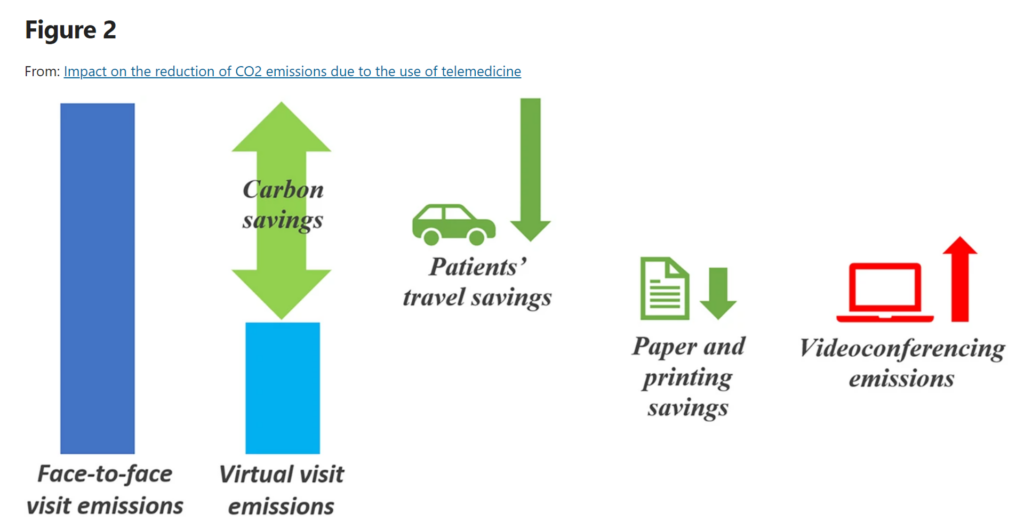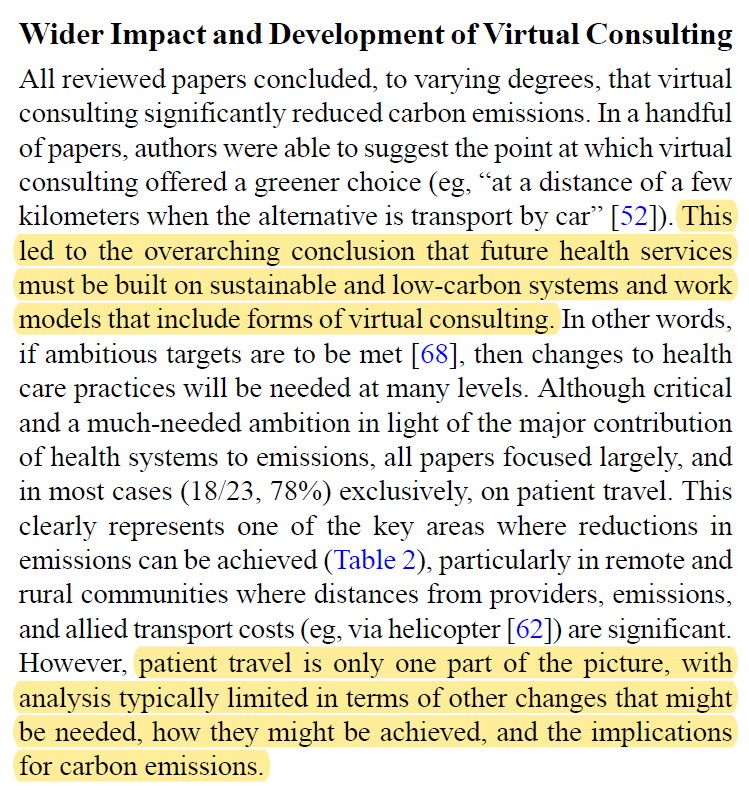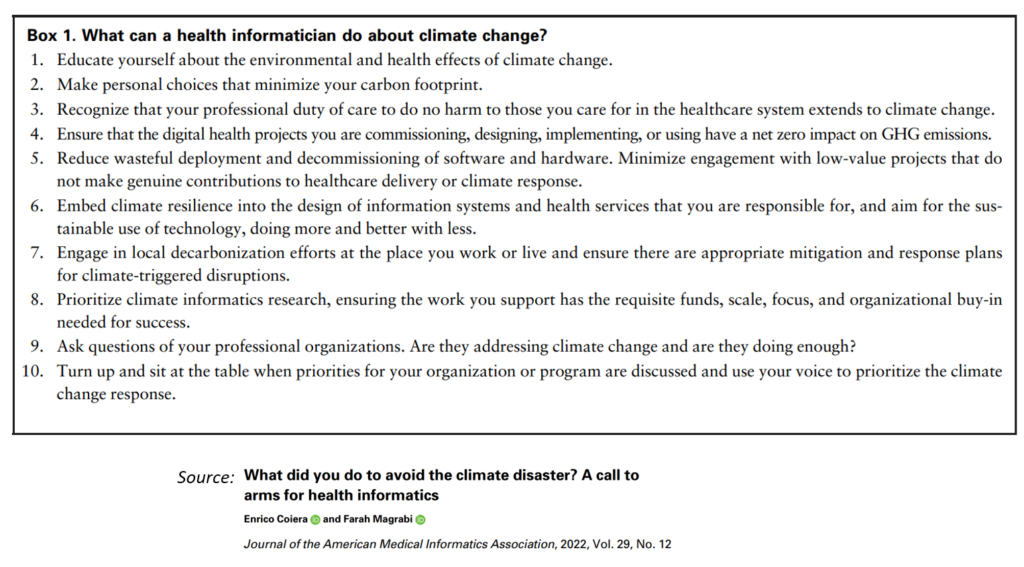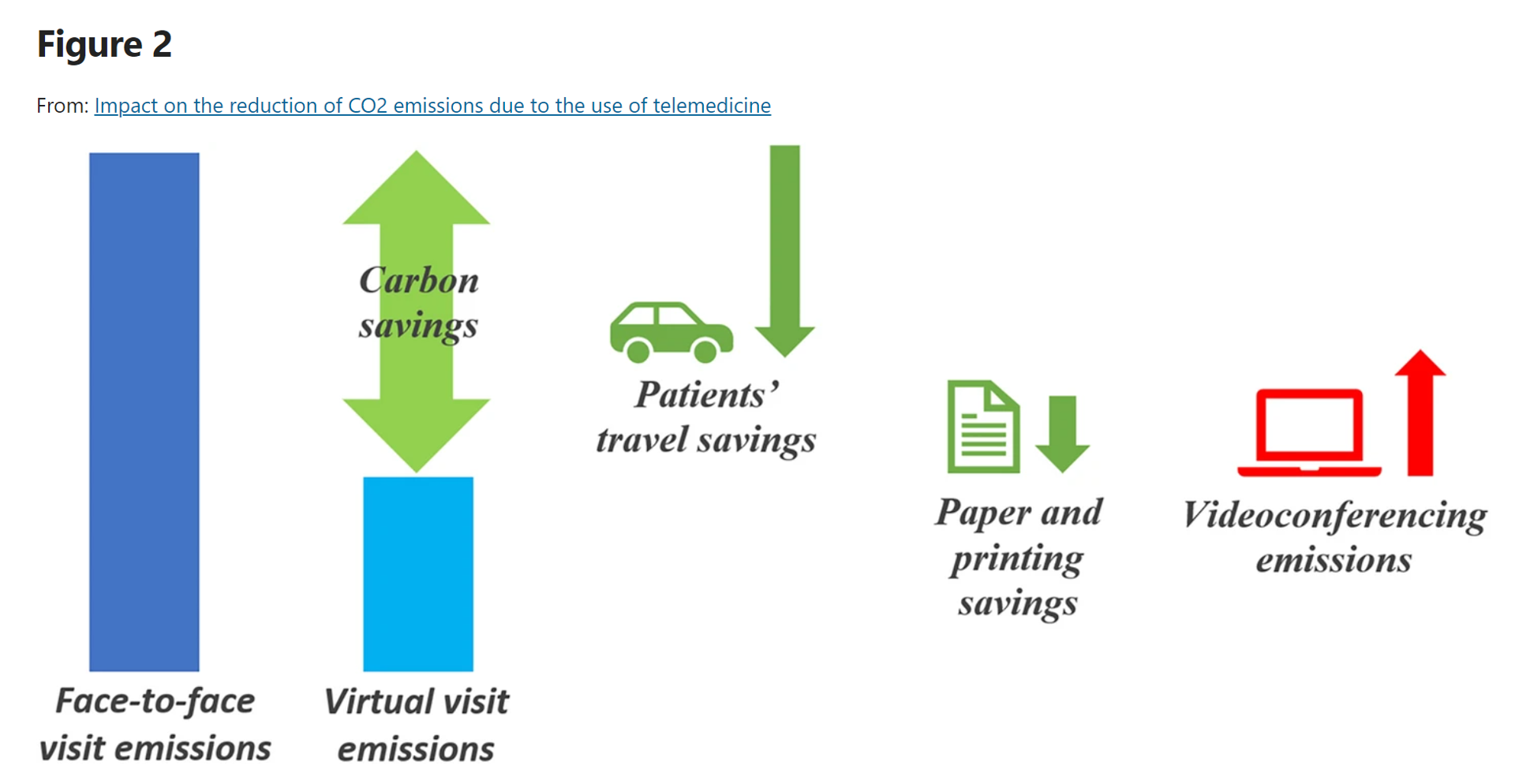As implemented in the COVID-19 era and its immediate wake, the most obvious environmental benefits offered by telehealth visits replacing in-person patient encounters have been achieved through reduced patient travel, considering The Role of Virtual Consulting in Developing Environmentally Sustainable Health Care, a systematic literature review published in the Journal of Medical Internet Research.

This study, led by researchers at the University of Oxford, UK, and the University of Oslo, Norway, identified over 1,600 scientific papers, narrowing the most rigorous and relevant to 23 papers focusing on virtual consulting and carbon emissions.
This is an important question for two major reasons:
- There is a direct relationship between health and the environment; and,
- Health care systems are major contributors to climate change due to the large volume of greenhouse gases they emit.

These papers universally found that virtual consulting (that is, telehealth visits) “significantly” reduced carbon emissions.
The researchers conclude that (highlighted in this paragraph), “future health services must be built on sustainable and low-carbon systems and work models that include forms of virtual consulting.”
Furthermore, the study largely focused on patient travel: and this is only “one part of the picture,” the team advises, recommending that more research be done enlarging the impact of virtual care across the health delivery value chain of the clinical pathway beyond the scenario of patient travel. To get a complete picture, these benefits should be weighed against the potential risks of virtual care, researchers giving the examples of adverse events and missed diagnoses.
Health Populi’s Hot Points: Many pioneering health systems and care providers have already committed to taking steps to reducing carbon omissions, devoting resources to these efforts. Three ESG environmental/social/governmental health system examples are:
- UPMC committed to reduce greenhouse gas emissions by 50% by 2030. The responsibility for this commitment will be jointly owned by the “co-chiefs” of UPMC’s sustainability efforts. the VP of Facilities and Support Services and the President of UPMC Innovative Homecare Solutions
- Five University of California health systems who collaborated on research into increased use of ambulatory telehealth services’ positive impact on patients’ round-trip distance, time, and cost-savings, and greenhouse gas emissions; and,
- CommonSpirit quantified virtual care‘s so-called “green benefits” during the health system’s operation in the first year of the COVID-19 pandemic across over 1.5 million telehealth visits. The organization calculated reduced greenhouse gas emissions equal to planting over 250,000 trees and removing over 3,000 cars from highways for one year. More granularly, virtual visits in the CommonSpirit system reduced greenhouse gas emissions by 15.000 metric tons and saved patients about $3.5 million in gas costs. This also saved patients over 900,000 personal time-hours..

Every stakeholder in health care as an individual as well as member of an organization has a role to play in addressing climate change. Check out an essay on the role of health informatics in climate disaster published in JAMIA by two health IT experts with the Australian institute of Health Innovation at Macquarie University in Sydney. This box asks questions about what a health informaticians can do about climate change, suggesting that we can, at a minimum, educate ourselves on the issues, make personal choices to downsize our own carbon footprints, and embrace that reality that we should and can “do no harm” when it comes to the roles we play in the healthcare system.
Supporting telehealth where the evidence points to virtual care’s positive impact on patients and the planet is another way we can constructively use our energy to expand both health care access and do right by the environment.
For more insights into the U.S. healthcare system’s environmental threat to human health, I highly recommend your reading Lisa Suennen’s essay written for the Aspen Institute published in April 2023.





 Interviewed live on BNN Bloomberg (Canada) on the market for GLP-1 drugs for weight loss and their impact on both the health care system and consumer goods and services -- notably, food, nutrition, retail health, gyms, and other sectors.
Interviewed live on BNN Bloomberg (Canada) on the market for GLP-1 drugs for weight loss and their impact on both the health care system and consumer goods and services -- notably, food, nutrition, retail health, gyms, and other sectors. Thank you, Feedspot, for
Thank you, Feedspot, for  As you may know, I have been splitting work- and living-time between the U.S. and the E.U., most recently living in and working from Brussels. In the month of September 2024, I'll be splitting time between London and other parts of the U.K., and Italy where I'll be working with clients on consumer health, self-care and home care focused on food-as-medicine, digital health, business and scenario planning for the future...
As you may know, I have been splitting work- and living-time between the U.S. and the E.U., most recently living in and working from Brussels. In the month of September 2024, I'll be splitting time between London and other parts of the U.K., and Italy where I'll be working with clients on consumer health, self-care and home care focused on food-as-medicine, digital health, business and scenario planning for the future...